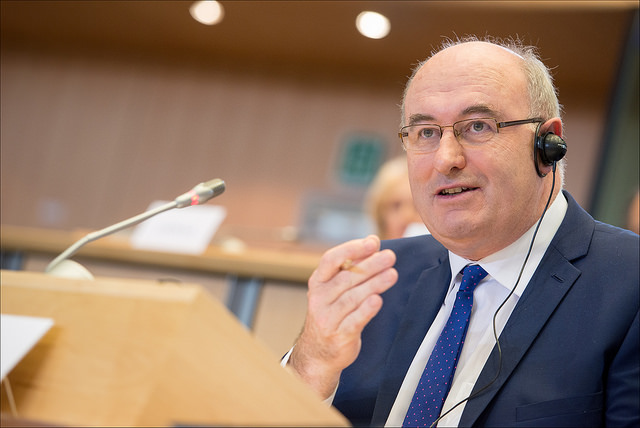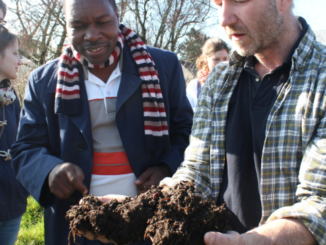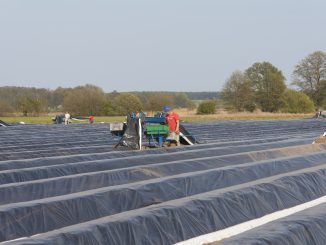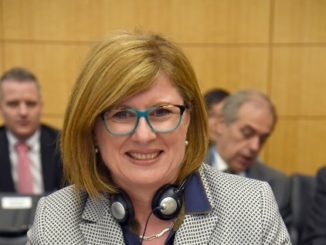
Updated 22.08SMT 17/11/2015
Farmers will have far fewer on-the-spot inspections than they currently have under new simplification plans announced by EU Agri Commissioner Phil Hogan.
“It will be possible, for certain schemes, to reduce the on–the-spot-checks from 5 per cent to only 1 per cent of the sample size. This measure will significantly relieve the burden on farmers and national administrations alike” the Commissioner said at an Agrafish Council of Ministers meeting on Monday.
This reduction to just 20% the current number of inspections, was accompanied by a raft of other changes and suggestions for future simplifications.
Increased flexibility in “the procedures for conducting inspections under the integrated administration and control systems (IACS)” were also announced, Agriland reported.
These include preliminary checks – where paperwork can be resubmitted without penalty for 35 days; increasing the “efficiency of the selection of samples – particularly by carrying out a range of different samples during the course of a single on-the-spot-check”; and yet more modification of greening.
The Commissioner wants to “provide farmers with further possibilities to modify their declaration regarding the use of agricultural parcels for the purpose of greening. This is a practical proposal which will have a positive impact on farmers who may need to adapt their cultivation plan during the growing season.”
While “most of the changes will be applicable as from Claim Year 2016, some of them will be applicable retroactively for 2015” according to Commissioner Hogan.
In a press briefing later on with the Commissioner however, Farmers’ Weekly report him as suggesting that any revised package would become applicable in the 2017 claim year.
Is this massive reduction in the number of inspections, and concurrently, this move over to a more risk-based assessment justified by the data? How are farmers’ currently performing when they are inspected?
According to Ireland’s Agriland “Last year almost 40% of farmers were hit with a penalty or sanction following cross compliance inspections.”
Some 1,368 cross compliance inspections were carried out by Department of Agriculture representatives last year. Of those inspections some 528 were found to have breaches which incurred monetary penalties or sanctions.”
The solution to a 40% failure rate then, is a reduction by 4/5 in the number of inspections. 2016 should, as if by magic, see a much smaller number of farmers recorded as non-compliant. This in turn will no doubt lead to much back slapping about how EU farmers are the best in the world at compliance, about how the system works, and how we need even more simplification.
Some efficiencies certainly make sense. The idea of one visit covering more than one inspection task – as also suggested by the Commissioner – could be a good one, with the proper training for inspectors.
But its worth remembering that this process is happening alongside cuts on inspections imposed by Departments of Agriculture and their equivalents in many EU countries.
Because if there are ever fewer rules protecting public goods like water or biodiversity, and hardy any inspections anyway, who will ever get caught breaking them?
More
ARC2020 on CAP simplification (March 2015) (June 2015)
The Commissioner’s speaking notes are available at this link: Council briefing – Simplification_FINAL





